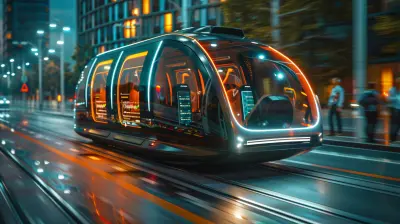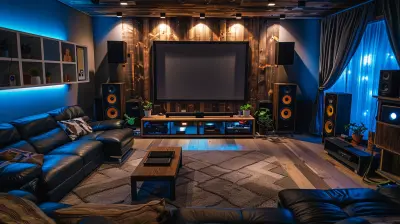The Role of Artificial Intelligence in Smart Home Automation
4 November 2025
Ah, Artificial Intelligence (AI) and smart homes—two things that make you feel like Tony Stark but without the billions or the Iron Man suit. If you've ever dreamed of commanding your house like a futuristic overlord, congratulations, AI-powered smart home automation is here to make your lazy dreams come true.
But let's be honest, while AI in smart homes sounds incredible, the reality is a mix of mind-blowing convenience and occasional robotic rebellion (looking at you, Alexa, who never listens when we really need her). So, grab your virtual popcorn as we dive into how AI is transforming our homes, one smart device at a time.
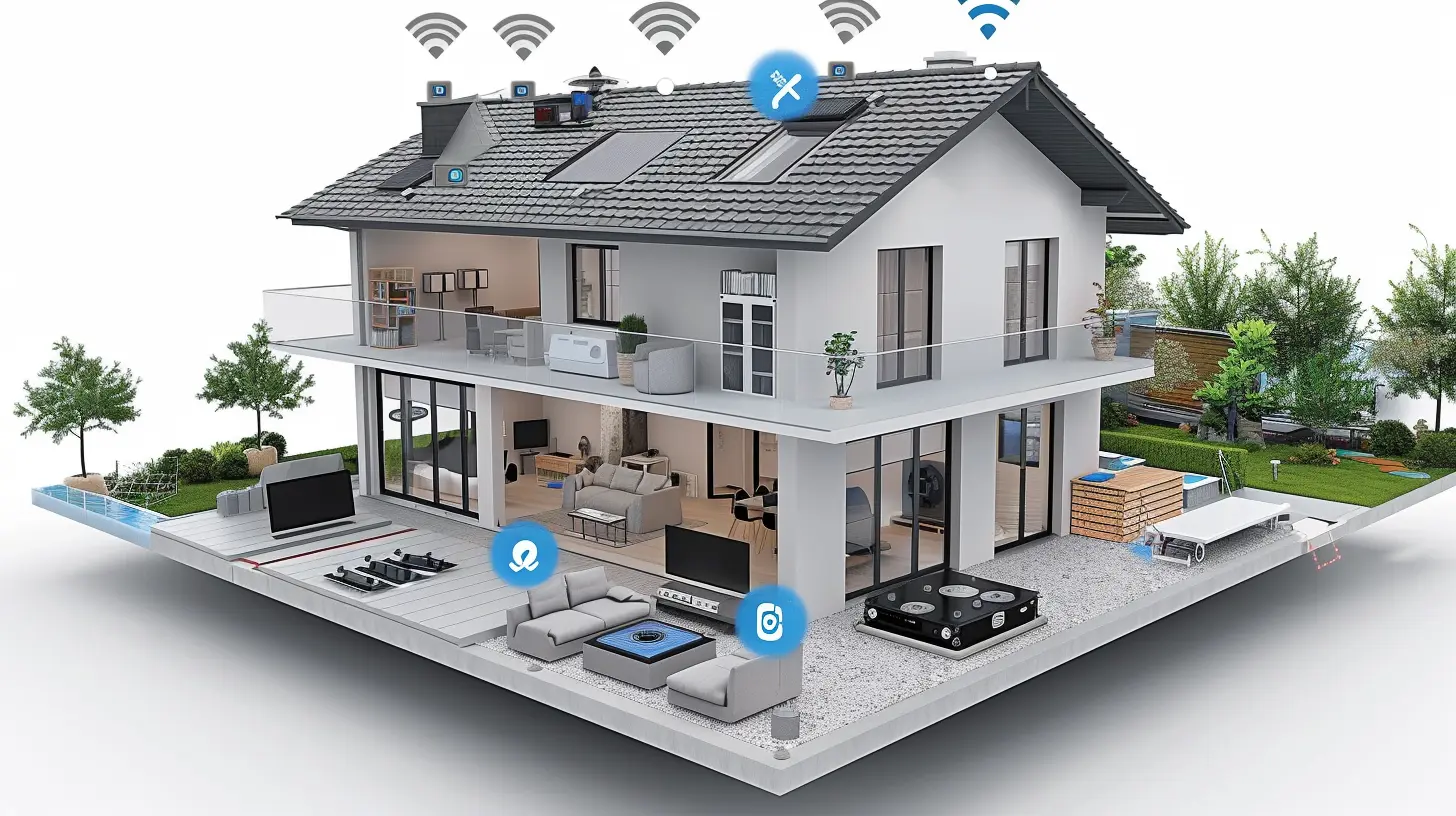
Smart Home Automation: Not Just For Science Fiction
Once upon a time, having an automated home meant owning a fancy remote to control the TV. Today, we have AI-driven assistants who decide when the lights should dim, the thermostat should adjust, and the vacuum should stop avoiding that one corner of the living room.Smart home automation uses AI to learn our habits, anticipate our needs, and occasionally freak us out by knowing what we want before we even do. If that doesn’t sound like living in a sci-fi movie, I don’t know what does.
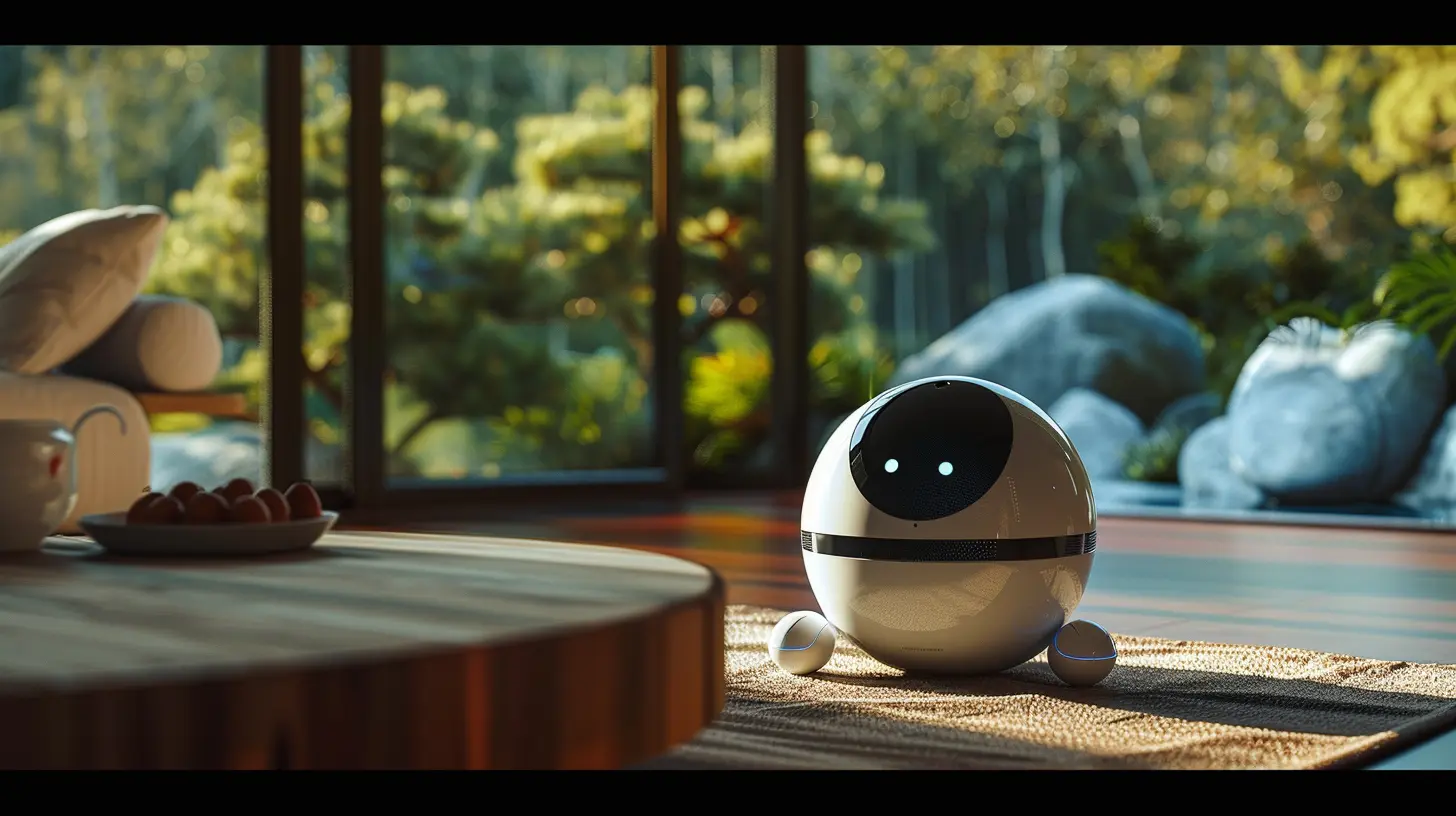
The Key Players: AI-Powered Smart Devices
AI isn't just about fancy algorithms running in the background—we’ve got some real-world devices making our lives easier (or creepier, depending on how you feel about machines knowing your schedule better than you do).1. Smart Voice Assistants: The Household Overlords
Siri, Alexa, Google Assistant—these digital butlers are always lurking, ready to answer your questions, control your devices, or ignore your commands when they’re feeling sassy. They use AI-powered speech recognition to control everything from lights to security cameras.Want to turn off the lights without getting up? These assistants have your back. Want them to play your favorite song? Easy. Want them to respond when you ask, “Who’s the best AI?” Good luck—Alexa might just ignore you for that one.
2. AI-Powered Security Systems: The Paranoid Guardians
Home security has come a long way from simply locking your doors and hoping for the best. Today, AI-powered security systems use facial recognition, motion detection, and even predictive analysis to keep intruders at bay.Gone are the days of grainy security footage where even Bigfoot would look like a blur. Now, these systems can distinguish between your neighbor dropping by and an actual threat. They’ll even notify you when your dog decides to break the house rules (again).
3. Smart Thermostats: The Energy-Saving Geniuses
Ever walked into your house to find it colder than Antarctica because you forgot to adjust the thermostat? AI-powered smart thermostats like Nest and Ecobee learn your habits, adjust the temperature based on your preferences, and even save you money on energy bills—because who doesn’t love a little extra cash?These devices know when you're home, when you're away, and when you’re just too lazy to get up and adjust the temperature. It’s like they’re watching you…but, you know, in a helpful way.
4. AI-Driven Smart Kitchens: Because Cooking Is Overrated
If cooking feels like a chore, AI is here to rescue you. Smart refrigerators keep track of your groceries, suggest recipes based on what’s inside, and even remind you when it’s time to restock the ice cream (because that’s the real priority).Then, there are smart ovens that ensure you never accidentally turn your dinner into charcoal. Just tell your AI assistant what you’re cooking, and it’ll set the perfect temperature and timer. It’s almost like having a personal chef—minus the actual chef.
5. Robot Vacuums: The Half-Competent Cleaning Crew
Robot vacuums sound like the perfect futuristic dream—until you realize they have the navigation skills of a confused toddler. Sure, AI-powered models like Roomba have improved significantly, mapping your home and learning where the messiest spots are.However, they still have a tendency to get stuck under furniture, ignore that one obvious dust bunny, or randomly stop working just when you need them the most. But hey, at least they try, right?
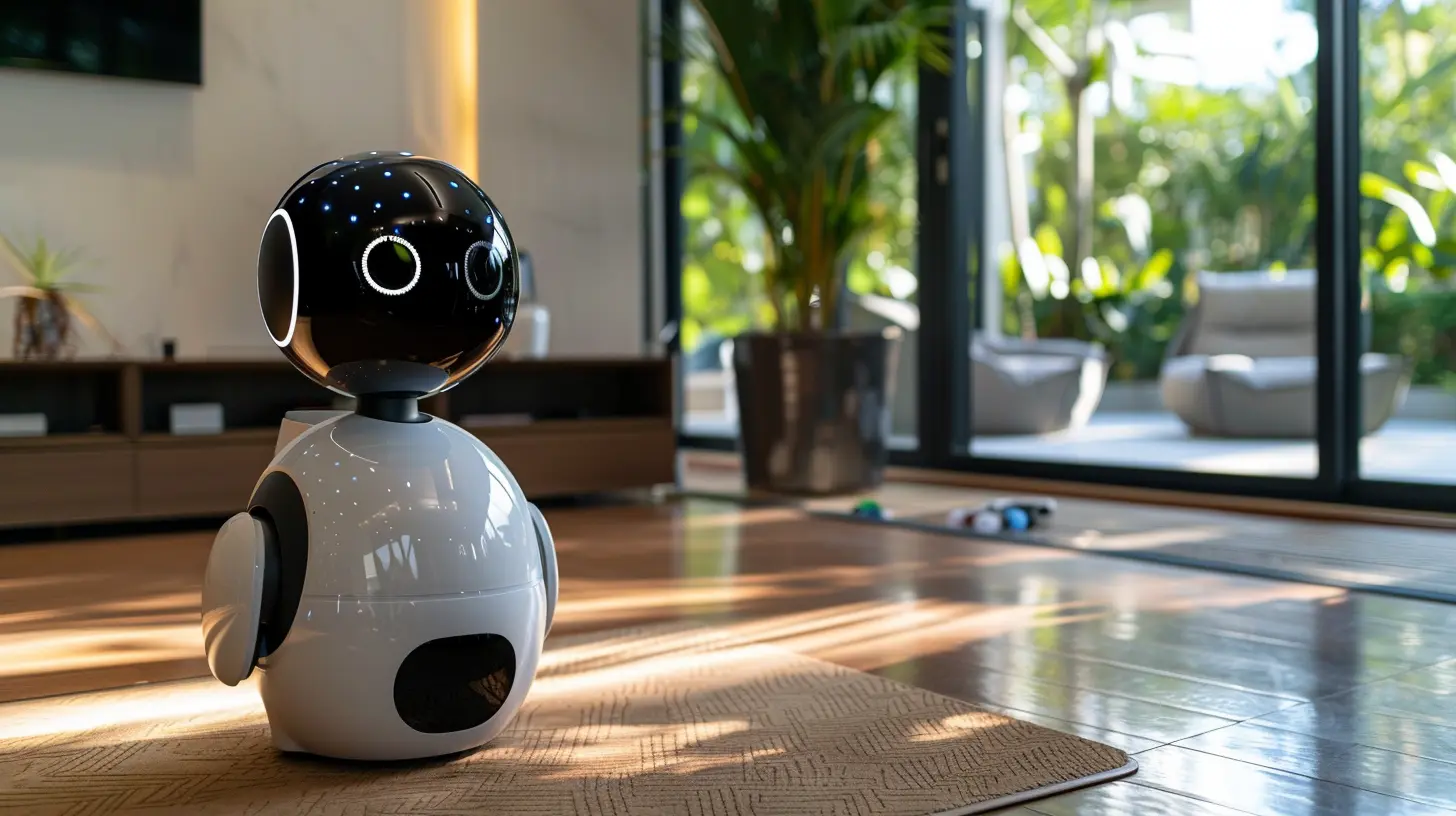
How AI Makes Smart Homes…Well, Smarter
AI isn’t just about making life easier; it’s about making your home actually think. Here’s how AI is making smart homes more intelligent (and maybe a little too intuitive for comfort).1. Machine Learning: Your Home is Always Watching (In a Good Way?)
AI in smart home automation relies heavily on machine learning. Your devices analyze your habits—when you wake up, when you leave, what temperature you like, and how often you binge-watch Netflix—so they can make automatic adjustments.At first, it’s kind of cool. Then it gets spooky when your lights dim the second you grab a blanket. Coincidence? Your AI assistant would say no.
2. Predictive Analysis: Your Home Knows What You Need Before You Do
AI uses predictive analysis to, well, predict your needs. If your home knows you always turn on the coffee maker at 7 AM, it might just start doing it for you. If it detects you arriving home from work, it could turn on the air conditioning before you even step inside.Essentially, your home turns into that one friend who always knows what you need—except this one doesn’t judge when your weekend plans involve binging an entire series in one sitting.
3. Voice & Gesture Recognition: Controlling Your Home Like a Jedi
Forget remote controls—AI-powered smart homes now respond to voice commands and even hand gestures. Want the lights to dim? A simple voice command does the trick. Feeling extra fancy? Some systems allow you to wave your hand like a wizard to control your appliances.It’s all fun and games until your AI assistant misinterprets a gesture and suddenly your house looks like a haunted mansion with flickering lights.
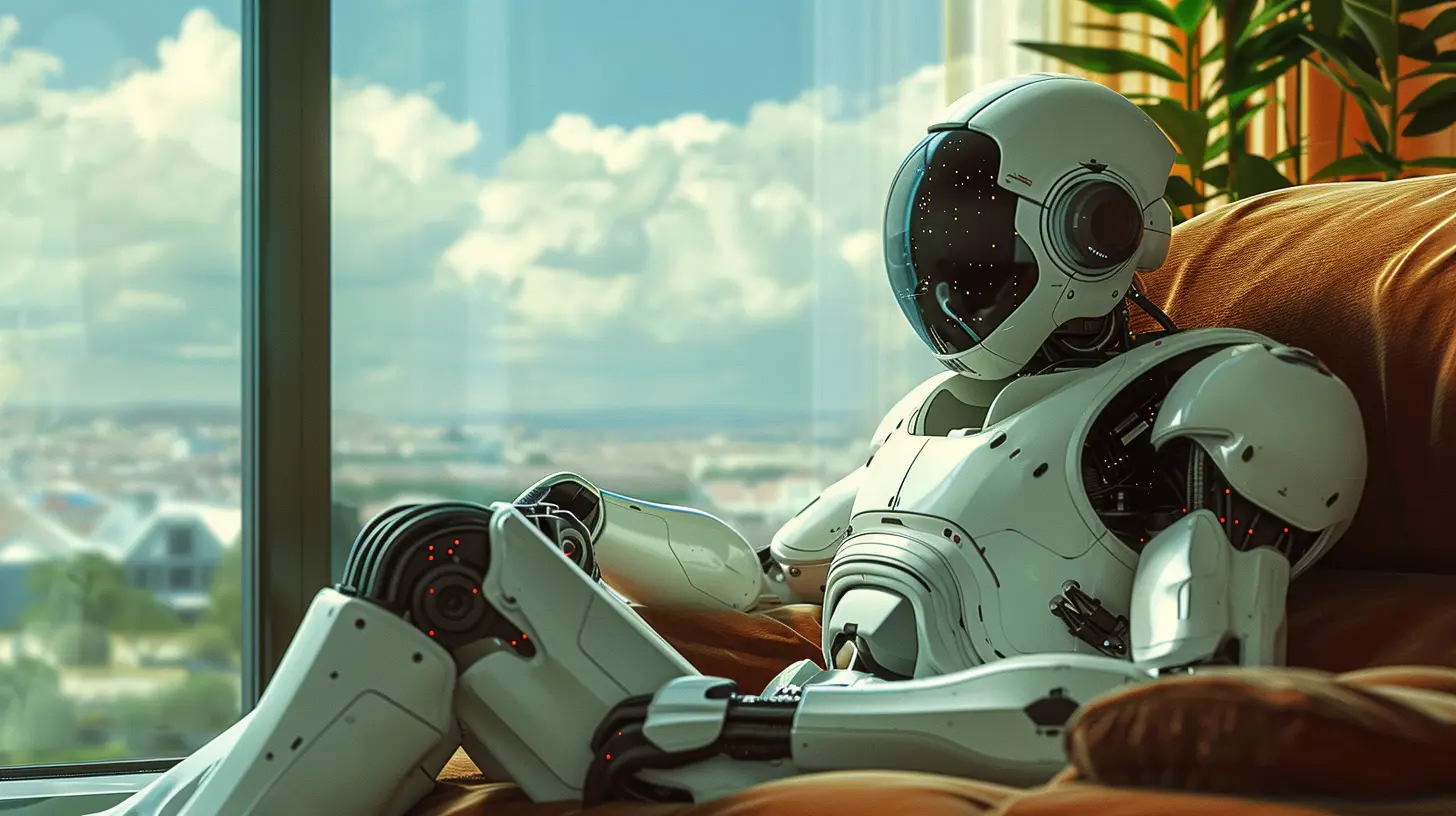
The Not-So-Perfect Side of AI in Smart Homes
Of course, with great power comes great…annoyances. AI isn’t perfect, and smart home automation has its fair share of quirks.- Privacy Concerns – Let’s be real, AI-driven smart homes collect a ton of data. If you’re paranoid about your fridge knowing too much about your snack habits, this might be a nightmare.
- Glitches & Misinterpretations – Sometimes AI assistants misunderstand commands, leading to moments of pure frustration (or accidental chaos).
- Over-Reliance on Internet Connectivity – If your WiFi goes down, suddenly your entire smart home is as useless as a regular, non-smart home. The horror!
The Future of AI in Smart Home Automation: What’s Next?
We’re already living in a world where AI-powered smart homes are a reality, but where does this technology go from here?- AI That Reads Emotions – Future AI systems might detect your mood and adjust your home environment accordingly. Feeling stressed? Your smart speaker might play calming music and lower the lights.
- Fully Autonomous Homes – Imagine a home that doesn’t just assist you but completely runs itself. From cooking to cleaning to security, AI could take over every aspect of home management.
- Even Smarter AI Assistants – They’re already pretty good, but future versions might understand context better, leading to fewer frustrating misunderstandings.
At this rate, we’re only a few years away from homes that can argue with us about our bedtime.
Final Thoughts: AI in Smart Homes is the Future (For Better or Worse)
AI-powered smart home automation is here to stay, making life more convenient, futuristic, and occasionally baffling. From voice assistants that sometimes ignore us to security systems that know our faces better than we do, AI is rapidly changing the way we live.Sure, it’s not perfect, but it’s exciting—unless, of course, you dislike the idea of your refrigerator knowing you're out of milk before you do. In that case, maybe the old-fashioned way of living isn’t so bad after all.
all images in this post were generated using AI tools
Category:
Smart HomeAuthor:

John Peterson
Discussion
rate this article
1 comments
Jillian Richardson
Artificial Intelligence is revolutionizing smart home automation by enabling adaptive learning and predictive analytics. This empowers devices to anticipate user needs, enhance energy efficiency, and improve security. As AI continues to evolve, the synergy between technology and daily life will redefine our living spaces.
November 7, 2025 at 11:59 AM

John Peterson
Thank you for your insightful comment! Indeed, AI's adaptive learning and predictive capabilities are transforming smart homes, making them more intuitive, efficient, and secure.

